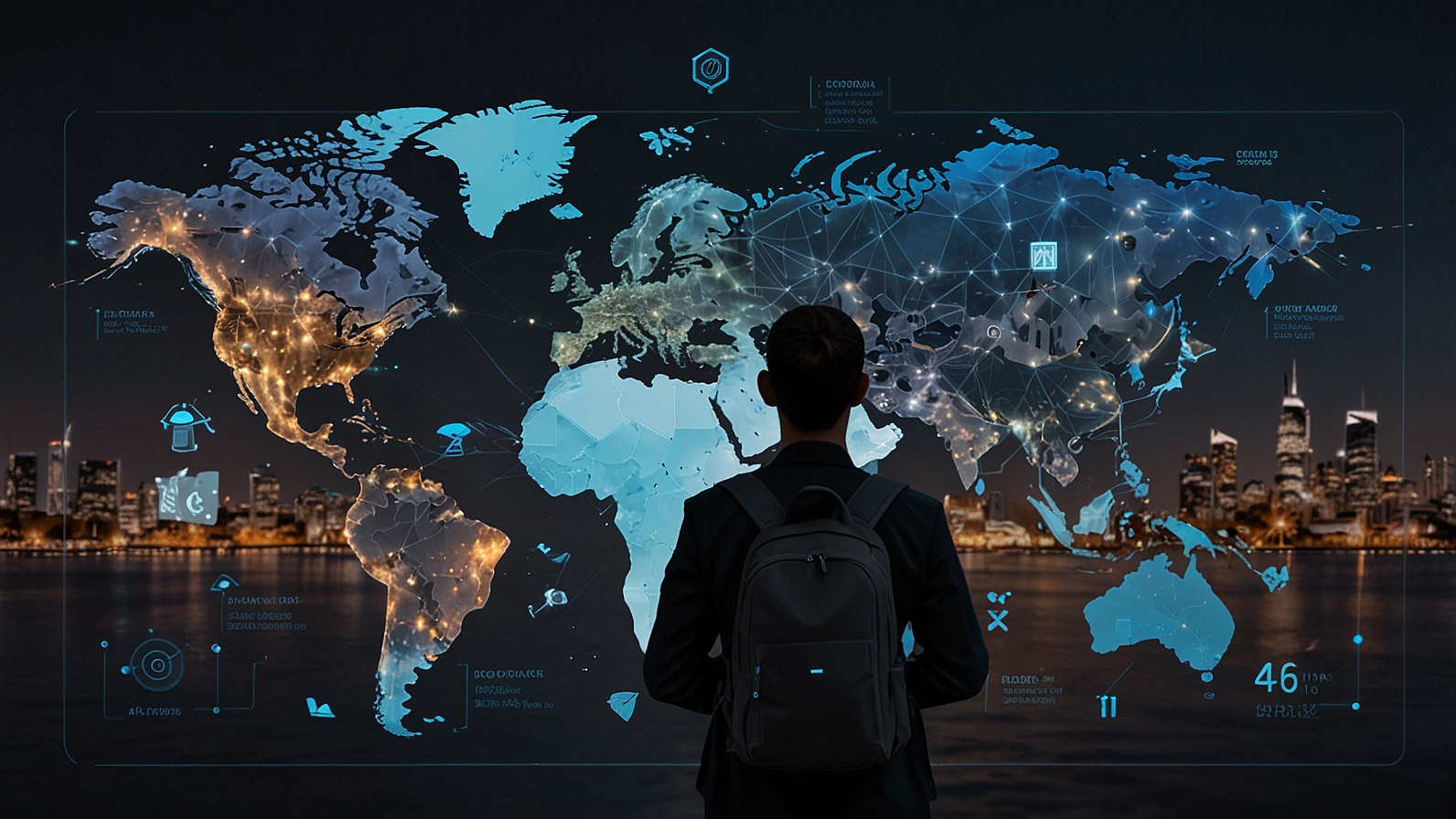The way we plan our trips is undergoing a monumental shift, thanks to artificial intelligence (AI). From personalized recommendations to real-time itinerary adjustments, AI is making travel planning more efficient, accessible, and tailored to individual preferences. Whether you’re a seasoned traveler or someone planning your first trip, AI-powered tools are revolutionizing how we explore the world. Here’s a look at how AI is shaping the future of travel planning.
1. Personalized Travel Recommendations
Gone are the days of relying solely on traditional travel guides or generic online searches for vacation ideas. AI-driven platforms are now able to analyze vast amounts of data to recommend destinations, activities, and accommodations that match your unique preferences. These tools take into account everything from your past trips to your social media interactions, allowing for a hyper-personalized travel experience.
For example, services like Google Travel and Expedia use AI to analyze a user’s past searches, bookings, and interests to suggest destinations and experiences that align with their tastes. AI can even predict your future preferences, offering recommendations based on trends and user behaviors. Imagine planning a trip where every suggestion—from hotels to local attractions—is tailored specifically to you.
2. Smart Itinerary Building
Creating a perfect travel itinerary can be time-consuming, with the need to juggle flights, accommodations, activities, and transportation options. AI simplifies this process by integrating multiple aspects of travel into a single platform. Platforms like TripIt and Kayak now use AI to suggest optimized itineraries based on your preferences, such as flight times, hotel locations, and activity schedules.
Some AI tools even help travelers optimize their routes. For instance, AI can suggest the best time to visit certain attractions to avoid crowds, recommend nearby restaurants, or adjust your itinerary on the fly if there are delays or cancellations. This real-time flexibility ensures that travelers can make the most of their time without worrying about logistical challenges.
3. Travel Chatbots and Virtual Assistants
AI-powered chatbots have become an integral part of the travel experience, serving as virtual assistants that can help with everything from booking flights to answering questions about your destination. Airlines, hotels, and travel agencies are increasingly using chatbots to provide instant customer service and assist in planning trips.
Skyscanner’s chatbot, for instance, can help users find flights, provide details on baggage policies, and even help with visa requirements. These bots are available 24/7, giving travelers immediate assistance without needing to wait on hold or navigate complex websites.
In addition to travel-specific bots, Siri, Google Assistant, and Amazon Alexa have become popular for providing travel information, helping with currency conversions, and even managing hotel check-ins. Virtual assistants also help users navigate airports, book transportation, and provide directions in foreign cities.
4. AI for Better Pricing and Deals
One of the most attractive aspects of AI in travel planning is its ability to help travelers save money. AI tools such as Hopper and Google Flights analyze historical data, trends, and algorithms to predict the best times to buy flights and hotels, often helping travelers secure the lowest prices.
Hopper, for instance, has an AI-powered feature called “Price Freeze,” where it forecasts future airfare prices and lets users lock in current prices for a small fee, guaranteeing the lowest rate possible. Such innovations remove the guesswork from booking and ensure that users get the best value for their money.
Moreover, AI-driven price comparison tools are becoming more accurate and efficient, offering travelers the ability to compare rates across airlines, hotels, and rental car services in real-time. This helps users make informed decisions based on budget, comfort, and convenience.
5. AI-Powered Translation and Communication
Traveling to a foreign country can be intimidating, especially if you don’t speak the language. However, AI-powered translation tools are making communication easier than ever before. Apps like Google Translate and iTranslate use AI to translate written and spoken language in real-time, breaking down the language barrier for travelers around the world.
Additionally, AI-powered tools like Waygo provide instant translations for menus, street signs, and other written text, enabling smoother travel experiences in countries with languages you may not be familiar with.
6. AI-Enhanced Travel Safety
AI is also playing a significant role in enhancing the safety of travelers. Tools such as Smart Traveller and Travel Smart use AI to monitor global news and alerts, providing travelers with real-time updates about potential safety risks, health concerns, or political instability in their travel destinations.
For example, AI-powered platforms can track and analyze patterns of diseases like COVID-19, informing travelers about potential health risks in specific regions. Travel companies can use AI to offer travelers real-time updates on flight status, gate changes, or security wait times, making the airport experience more seamless.
7. Sustainable Travel Planning
As sustainability becomes an increasing concern for many travelers, AI is helping plan greener trips. AI tools help identify sustainable travel options, from eco-friendly hotels to carbon-offset flight options. Platforms like Green Key and Booking.com integrate AI to promote accommodations and activities that minimize environmental impact.
By analyzing data on energy usage, waste management, and local sustainability practices, these platforms make it easier for eco-conscious travelers to choose destinations and services that align with their values.
The Future of Travel Planning: What’s Next?
As AI continues to evolve, the future of travel planning will become even more intuitive and personalized. AI could soon anticipate traveler needs before they even ask—whether suggesting a local restaurant based on dietary preferences or rebooking a flight due to a weather-related delay. With AI-powered platforms getting smarter, the future holds the promise of an even more seamless, stress-free travel experience.
For now, AI has already made great strides in revolutionizing travel, helping us plan, book, and enjoy our trips more efficiently. With the ever-growing role of AI in the travel industry, travelers can look forward to smoother, more personalized, and even more sustainable travel experiences in the years to come.





